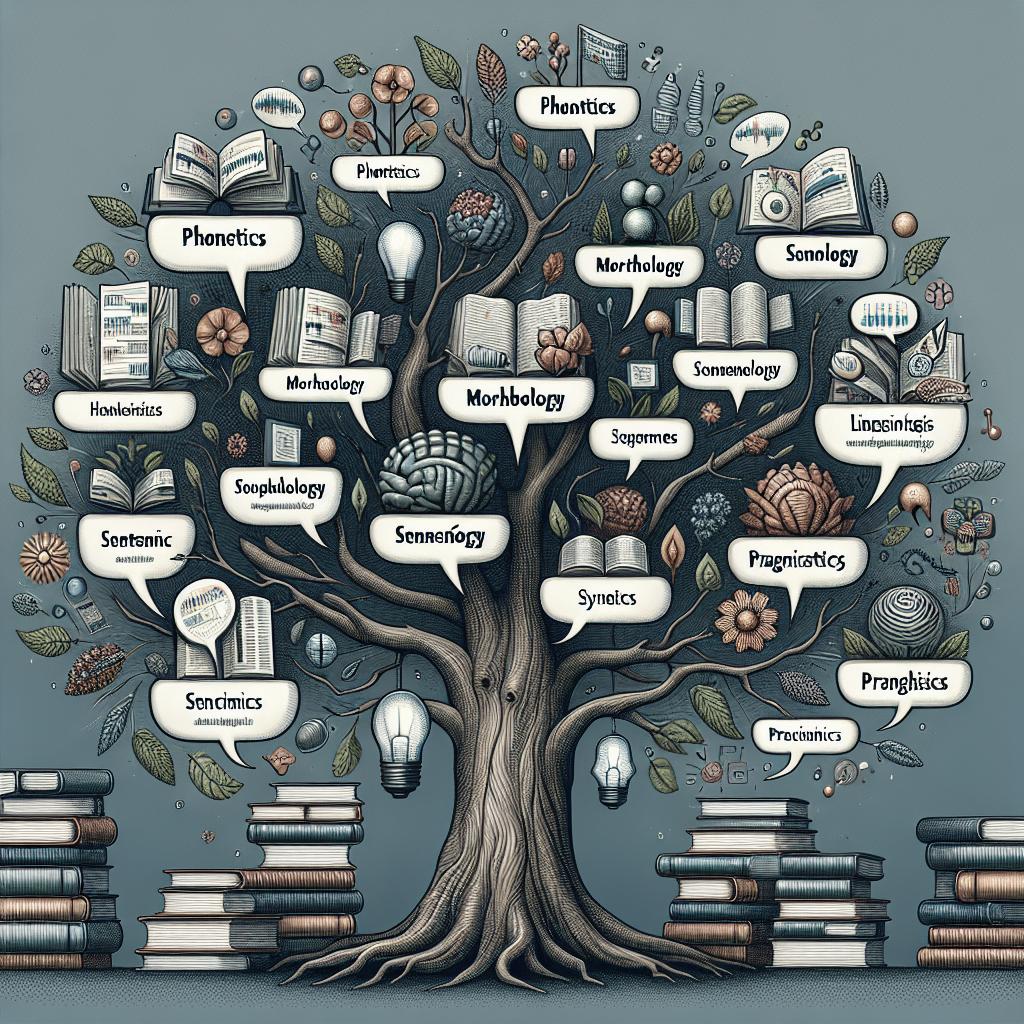<>
— The study of language is vital in understanding how we communicate, process information, and develop cognitive skills. Psycholinguistics, a field dedicated to exploring these aspects, bridges the gap between psychology and linguistics. This blog post delves into the definition of psycholinguistics, its importance, the symbiotic relationship between linguistics and psycholinguistics, and the future potential of this field. By examining how we comprehend, process, and acquire language, psycholinguistics offers profound insights into human cognition and communication. Let’s embark on a detailed exploration of this fascinating discipline.
The Definition of Psycholinguistics
Psycholinguistics is an interdisciplinary field that merges the principles of psychology and linguistics to study how humans acquire, comprehend, and produce language. It seeks to understand the mental processes involved in language use, which includes how we understand spoken and written language, produce speech, and acquire new languages. By analyzing these cognitive processes, psycholinguists aim to uncover the underlying mechanisms that enable language functionality. This field of study emerged in the mid-20th century and has gained prominence with advancements in cognitive science. It encompasses a variety of research areas, such as language development in children, language disorders, speech perception, sentence processing, and bilingualism. Psycholinguistics employs experimental and observational methods to investigate these phenomena, offering a comprehensive understanding of how language operates within the human mind.
The Importance of Psycholinguistics
A Study of Language Comprehension and Language Processing
Understanding how we comprehend and process language is crucial for various applications, ranging from improving educational methods to developing artificial intelligence. Psycholinguistics explores how individuals interpret sentences, understand semantics, and decode syntactic structures. This knowledge is particularly beneficial in creating effective communication strategies and designing curricula that enhance language learning. Additionally, studying language processing helps identify and address language-related disorders. By understanding the cognitive processes behind language comprehension, researchers can develop targeted interventions for conditions such as dyslexia, aphasia, and other communication impairments. This not only improves the quality of life for individuals with these disorders but also provides insights into the typical functioning of the human brain.
The Relationship Between Linguistics and Psycholinguistics
Linguistics and psycholinguistics are intrinsically linked, with each field enriching the other. While linguistics focuses on the structural aspects of language—such as syntax, phonetics, and semantics—psycholinguistics examines how these structures are processed and understood by the human mind. This symbiotic relationship enables a more holistic understanding of language as both a cognitive phenomenon and a structured system of communication. For instance, linguists might outline the rules governing sentence structure in a particular language, while psycholinguists would explore how native speakers internalize and process these rules during real-time communication. This collaborative approach enhances our knowledge of how language operates both as an abstract system and as a practical tool for human interaction.
Studying Language Acquisition is a Cognitive Science
Language acquisition is a critical area where linguistics and psycholinguistics converge. Understanding how children learn languages, including the stages of language development and the cognitive mechanisms involved, sheds light on broader cognitive processes. Psycholinguistics studies the mental frameworks that enable children to grasp grammar, vocabulary, and syntax, providing a window into human cognitive development. Moreover, research in this area helps inform educational practices and language instruction. By understanding the natural progression of language acquisition, educators can design more effective teaching methods that align with cognitive development stages. This not only supports first language acquisition but also aids in learning additional languages at various stages of life.
The Future of Psycholinguistics
The future of psycholinguistics is promising, with technological advancements paving the way for new research methodologies and applications. Neuroimaging techniques, such as fMRI and EEG, are enabling scientists to explore the neural underpinnings of language processing with unprecedented detail. These technologies offer real-time views of brain activity, deepening our understanding of how language functions at a neural level. Furthermore, interdisciplinary collaborations are expanding the scope of psycholinguistics. Integrating insights from neuroscience, artificial intelligence, and computational linguistics is opening new frontiers in the study of language. These collaborations are not only enhancing theoretical knowledge but also driving practical innovations, such as improved natural language processing algorithms and more effective speech therapy techniques. In the rapidly evolving field of psycholinguistics, continuous research and exploration are essential. By staying at the forefront of technological and theoretical advancements, researchers can contribute to a deeper understanding of the cognitive processes underlying language and its practical applications, ultimately enriching our grasp of human communication and cognition. Final thoughts
| Section | Content Summary |
|---|---|
| The Definition of Psycholinguistics | An interdisciplinary field merging psychology and linguistics to study language acquisition, comprehension, and production. |
| The Importance of Psycholinguistics | Explores language comprehension, processing, and applications in education, AI, and addressing language disorders. |
| Relationship Between Linguistics and Psycholinguistics | Examines how linguistic structures are processed and understood, enhancing holistic language understanding. |
| Studying Language Acquisition | Focuses on cognitive mechanisms of language learning, informing educational practices and developmental insights. |
| The Future of Psycholinguistics | Technological advancements and interdisciplinary research are driving new methodologies and applications in the field. |
—


